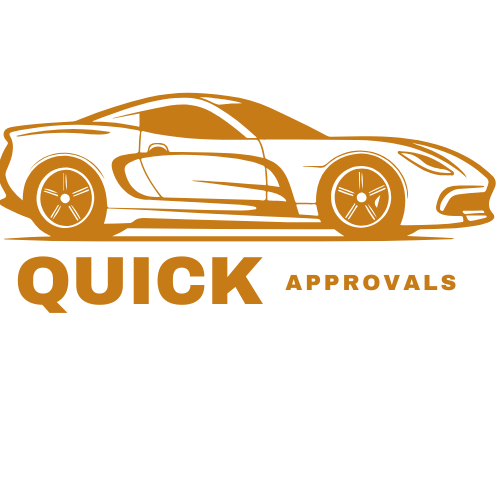Purchasing an SUV in Canada often involves securing a car loan for SUVs in Canada, as these versatile vehicles come with a higher price tag than smaller cars. SUVs are popular for their spacious interiors, capability on diverse terrains, and suitability for families or outdoor enthusiasts. Financing allows buyers to spread the cost over time, making monthly payments more manageable.
This comprehensive guide explores how to secure the best car loan rates for SUVs in Canada, use tools like an SUV car loan calculator in Canada, and navigate options like 0% financing on SUVs in Canada or SUV lease vs loan in Canada. Drawing on insights from authoritative sources like RBC Royal Bank, we’ll cover everything from loan basics to strategies for affordability. For personalized loan options, visit Quick Approvals to find competitive rates tailored to your needs.
Understanding Car Loans for SUVs in Canada

A car loan is a financial agreement where a lender provides funds to purchase a vehicle, with the vehicle itself serving as collateral. In Canada, SUVs are a top choice, with Statistics Canada noting they accounted for a significant portion of vehicle registrations in 2022. A car loan for SUVs in Canada enables buyers to afford these vehicles by paying in installments over 24 to 96 months.
Car loans typically feature fixed interest rates, ensuring predictable monthly payments. The total cost includes the principal, interest, and any fees. For SUVs, loan terms vary based on the vehicle’s price, your credit score, and the lender’s policies. Understanding these basics helps you make informed decisions and avoid overpaying.
Key Features of SUV Car Loans
- Fixed Interest Rates: Most loans have stable rates, aiding budgeting.
- Loan Terms: Range from 2 to 8 years, with longer terms lowering monthly payments but increasing total interest.
- Collateral: The SUV secures the loan, reducing lender risk but requiring full insurance coverage.
Factors to Consider for a Car Loan for SUVs in Canada
Several factors influence the terms of a car loan for SUVs in Canada. Evaluating these can help you secure favorable rates and avoid financial strain.
Credit Score
Your credit score significantly impacts loan approval and interest rates. A score above 700 often qualifies for lower rates, while scores below 600 may lead to higher rates or rejection. Check your credit report for errors and pay down debts to improve your score before applying.
Down Payment
A substantial down payment reduces the loan amount, lowering monthly payments and potentially securing better rates. For SUVs, how much down payment for SUV loan in Canada typically ranges from 10% to 20% of the vehicle’s price, though some lenders accept less.
Loan Term
Loan terms affect both monthly payments and total interest. Shorter terms (e.g., 36 months) have higher payments but lower total interest, while longer terms (e.g., 72 months) reduce monthly costs but increase overall expenses. Choose a term that balances affordability and total cost.
Interest Rates
Rates vary by lender and credit profile. As of March 2025, the average car loan rate was 6.86%, per Statistics Canada, but promotional offers like 0% financing on SUVs in Canada can lower costs for eligible buyers.
Total Cost of Ownership
Beyond the loan, consider insurance, fuel, maintenance, and taxes. SUVs often have higher insurance and fuel costs, so factor these into your budget to ensure affordability.
Finding the Best Car Loan Rates for SUVs in Canada
Securing the best car loan rates for SUVs in Canada requires comparing offers from banks, credit unions, and dealerships. As of June 2025, major banks like CIBC, TD, RBC, BMO, Scotiabank, and National Bank offer rates starting at 7.20% for terms up to 96 months, per Ratehub.ca. Online lenders like Approval Genie and CarsFast provide rates from 3.90% to 29.90%, depending on credit.
Current Offers
Manufacturers often provide promotional rates. For example:
- Chevrolet: 0% APR on 2025 Equinox EV and Blazer EV for 72 months in Ontario.
- Ford: 0% APR on 2025 Escape (72 months) and Bronco Sport (60 months) across Canada.
These offers, valid until June 30, 2025, require good credit and may have other conditions. Compare these with bank rates to find the best deal.
Tips for Better Rates
- Get Pre-Approved: Pre-approval from lenders like RBC Royal Bank clarifies your budget and strengthens negotiation.
- Shop Around: Compare rates from multiple sources, including dealerships offering in-house financing.
- Consider Payment Frequency: Weekly or bi-weekly payments can reduce interest, potentially saving thousands, per MoneySense.
How to Get a Car Loan for an SUV in Canada
Securing a car loan for SUVs in Canada involves a clear process. Follow these steps to improve your chances of approval and favorable terms.
- Check Your Credit: Review your credit score and report. Address any issues to boost your score.
- Set a Budget: Use an SUV car loan calculator in Canada to estimate payments based on loan amount, rate, and term.
- Get Pre-Approved: Apply for pre-approval from banks or online lenders to know your borrowing limit.
- Compare Offers: Shop for rates, including promotional deals like 0% financing on SUVs in Canada.
- Select an SUV: Choose a vehicle within your budget, considering fuel efficiency and maintenance costs.
- Apply for the Loan: Submit documents like proof of income, ID, and insurance. Dealerships may handle this for you.
- Review Terms: Ensure the interest rate, term, and fees are clear before signing.
- Make Payments: Pay on time to avoid fees and build credit.
Using an SUV Car Loan Calculator in Canada
An SUV car loan calculator in Canada is a vital tool for planning your purchase. It estimates monthly payments based on loan amount, interest rate, and term, helping you compare offers and set a budget.
Benefits of a Calculator
- Budget Planning: See how loan terms affect payments.
- Rate Comparison: Test different rates to find the best deal.
- Total Cost Insight: Understand interest and fees over the loan’s life.
Major banks like RBC and TD offer calculators on their websites. For example, RBC’s car loan calculator lets you input variables to estimate payments. Always include fees and ownership costs for a complete picture.
Securing Affordable Car Loans for SUVs in Canada
Finding affordable car loans for SUVs in Canada is possible, even with budget constraints or poor credit. Here are strategies to lower costs.
Options for Bad Credit
- Subprime Lenders: Lenders like Approval Genie offer loans for those with bad credit, though rates can reach 29.90%.
- Co-Signer: A co-signer with good credit can improve approval odds and rates.
- Improve Credit: Pay down debts or correct credit report errors before applying.
Cost-Saving Tips
- Buy Used: Used SUVs are cheaper, and some lenders offer competitive rates for certified pre-owned vehicles.
- Larger Down Payment: A higher how much down payment for SUV loan in Canada reduces the loan amount and interest.
- Negotiate: Dealerships may offer flexible terms or discounts to secure your business.
Government Incentives
While direct car loan subsidies are rare, some provinces offer rebates for electric SUVs, reducing the purchase price and loan amount. Check government websites for current programs.
Exploring 0% Financing on SUVs in Canada

0% financing on SUVs in Canada is a promotional offer where no interest is charged, significantly reducing costs. As of June 2025, notable offers include:
- Chevrolet: 0% APR on 2025 Equinox EV and Blazer EV (72 months, Ontario).
- Ford: 0% APR on 2025 Escape (72 months) and Bronco Sport (60 months, nationwide).
These deals, valid until June 30, 2025, often require excellent credit and may include conditions like specific trims or down payments. Always compare the vehicle’s price with non-promotional offers to ensure savings.
SUV Lease vs Loan in Canada

Choosing between an SUV lease vs loan in Canada depends on your financial goals and lifestyle.
Leasing an SUV
- Pros:
- Lower monthly payments, as you pay for depreciation, not the full vehicle cost.
- Access to newer models every 2–4 years.
- Often includes maintenance packages.
- Cons:
- No ownership at lease end.
- Mileage limits (e.g., 20,000 km/year) and wear-and-tear fees.
- Early termination can be costly.
Buying with a Loan
- Pros:
- Ownership after loan repayment.
- No mileage or usage restrictions.
- Potential to sell or trade-in later.
- Cons:
- Higher monthly payments.
- Responsible for all maintenance costs.
Consider leasing if you prefer lower payments and frequent upgrades, or a loan if you want long-term ownership. Use an SUV car loan calculator in Canada to compare costs.
What Is the Best Way to Finance an SUV in Canada?
The best way to finance an SUV in Canada depends on your financial situation. Options include:
- 0% Financing: Ideal for those with excellent credit, saving on interest.
- Bank Loans: Offer competitive rates (e.g., 7.20% from RBC) and flexible terms.
- Dealership Financing: May include promotional rates but check for hidden fees.
- Leasing: Suitable for lower payments and frequent vehicle changes.
Compare offers, get pre-approved, and use a calculator to find the most cost-effective option.
What Are the Requirements for SUV Car Loan in Canada?
What are the requirements for SUV car loan in Canada? Lenders typically require:
- Credit Score: Preferably above 600; higher scores get better rates.
- Income: Proof of stable income to ensure payment ability (e.g., pay stubs).
- Debt-to-Income Ratio: Payments should not exceed 18% of monthly income, per Car Loans Canada.
- Down Payment: Often 10–20% of the vehicle’s price.
- Documentation: ID, proof of insurance, and residency.
Check with lenders like RBC Royal Bank for specific criteria.
Q&A Section
How to Get a Car Loan for an SUV in Canada?
To secure a car loan for SUVs in Canada, start by checking your credit score to gauge eligibility. Get pre-approved from banks or online lenders to know your budget. Compare rates, including promotional offers like 0% financing on SUVs in Canada, and gather documents like proof of income and ID. Use an SUV car loan calculator in Canada to estimate payments and choose a vehicle within your budget. Apply through a bank, credit union, or dealership, and review terms carefully before signing.
Can I Get a Car Loan for an SUV with Bad Credit in Canada?
Yes, you can get a car loan for an SUV with bad credit in Canada, but expect higher interest rates (up to 29.90%). Subprime lenders like Approval Genie specialize in such loans. Improve your chances by adding a co-signer, making a larger how much down payment for SUV loan in Canada, or choosing a used SUV. Check with RBC Royal Bank for flexible options.
What Is the Best Way to Finance an SUV in Canada?
The best way to finance an SUV in Canada varies by need. 0% financing on SUVs in Canada is ideal for cost savings, while bank loans offer stability. Leasing suits those wanting lower payments. Compare offers, get pre-approved, and use an SUV car loan calculator in Canada to find the best fit.
How Much Down Payment for SUV Loan in Canada?
How much down payment for SUV loan in Canada typically ranges from 10% to 20% of the vehicle’s price, though some lenders accept less. A larger down payment reduces the loan amount and interest, making payments more affordable. Check lender requirements to confirm.
What Are the Requirements for SUV Car Loan in Canada?
What are the requirements for SUV car loan in Canada include a credit score (preferably 600+), proof of income, a debt-to-income ratio below 18%, and a down payment. Documentation like ID and insurance is also needed. Contact lenders like RBC for specifics.
Conclusion

Securing a car loan for SUVs in Canada is a practical way to afford a versatile vehicle suited to Canadian lifestyles. By comparing best car loan rates for SUVs in Canada, exploring 0% financing on SUVs in Canada, and using tools like an SUV car loan calculator in Canada, you can find affordable financing.
Whether you choose a loan or lease, understanding what are the requirements for SUV car loan in Canada and how much down payment for SUV loan in Canada ensures a smooth process. For personalized options, visit Quick Approvals to explore competitive rates. Check authoritative sources like RBC Royal Bank for additional insights and tools to make informed decisions.


